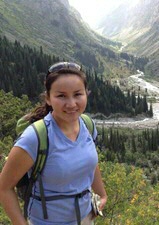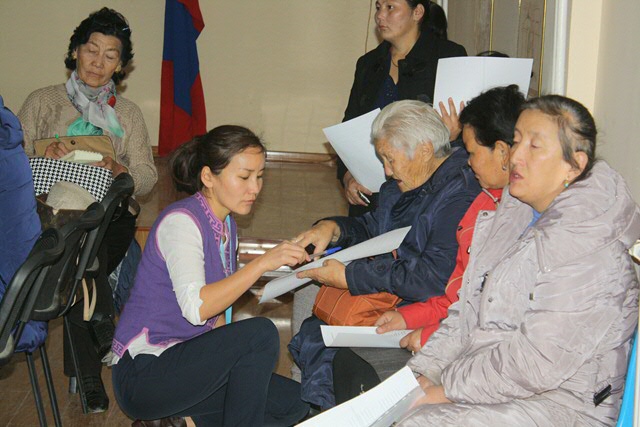Fighting Air Pollution in Ulaanbaatar

Oyuntuya Bayanjargal (31) completed the master program for Humanitarian Assistance (NOHA) in 2016, being the University’s first Mongolian student. Now she’s working in her native country to combat air pollution and prevent the spread of infectious diseases.
“The capital of Mongolia, Ulaanbaatar, suffers from very serious air pollution. This is particularly a problem during winter, when temperatures drop to minus thirty degrees or more. Many people burn coal to stay warm. This means we have a problem with indoor air as well as with outdoor air, although the outdoor air is the worst. Pollution levels can be five to six times higher than the standard declared as acceptable by the World Health Organization.”
Oyuntuya grew up in a small village in the eastern part of Mongolia. When she moved to Ulaanbaatar to attend the university she experienced first-hand what air pollution means. "I remember walking home from school at times not being able to see all the traffic on the road. I had bad headaches and my hair and clothes would smell after pollution", she says.
While she worked on her thesis on the impact of air pollution on the health of Mongolian children and their educational performance she realized the problem was a disaster. “Since then I want to raise awareness in Mongolia where I can and work towards a solution.”
The Humanitarian Assistance master program brought her to Groningen, to a German university and then to an internship for the WHO in Mongolia. “I have had an amazing time in Europe and NOHA has been very good and challenging for me.” She now works there as a short term consultant for WHO with a focus on the spread of infectious diseases. She helped set up campaigns for public awareness and fund raising. She also persuades clinics, orphanages and kinder gardens to improve indoor air quality by installing air filters.

“The problem is a complex one as it is related to poverty and social difficulties. Those who have little money, burn coals. Urbanization has intensified the problem in the capital area as poor Mongolian moved to ‘UB’, as Ulaanbaatar is often called, to gain access to better health care facilities and better education. Students from the capital, for example, mostly live with their parents. Yet students from the countryside compete for expensive accommodation or end up in the gers districts, the traditional tent areas which to many Mongolians are responsible for the bad air as these are not connected to the central heating systems. Girls in particular seek higher education, as parents believe they need it harder to make a living.
In her thesis for the NOHA master, Oyuntuya compared the health of school children in in poor districts with those growing up in apartment areas. “Children in the first group were sick more often. In particular, they suffered from respiratory diseases.” It is such facts that she wants to help change. Though working for the WHO does not necessarily confine her to Mongolia, she feels a strong drive to wake up her fellow Mongolians to the disaster of pollution and a need to find solutions. “My background gave me the drive to seek the opportunity that Groningen has offered. Now I want to do this for the people in Mongolia.”
Text: Edzard Krol
Photo: Flickr/Jjangum
Source: Broerstraat 5, the alumni magazine of the University of Groningen
| Last modified: | 19 March 2020 10.17 a.m. |
